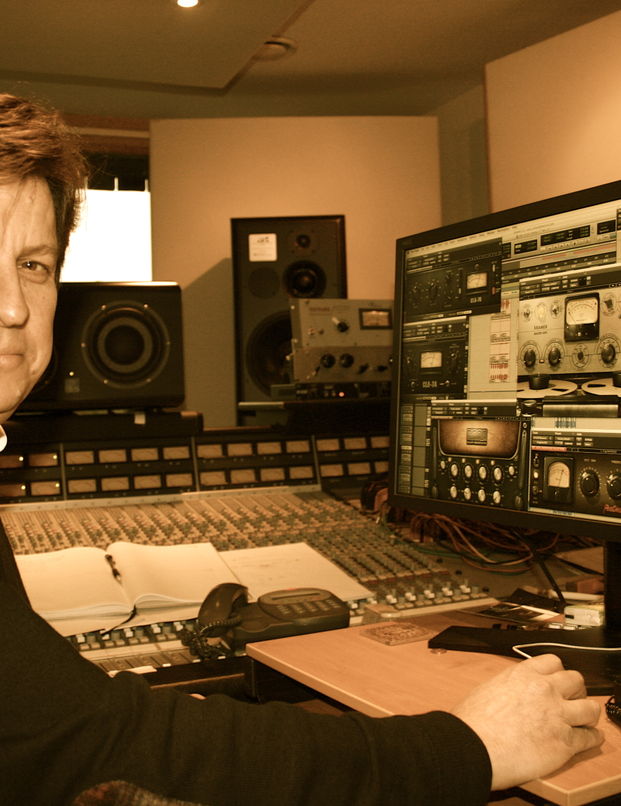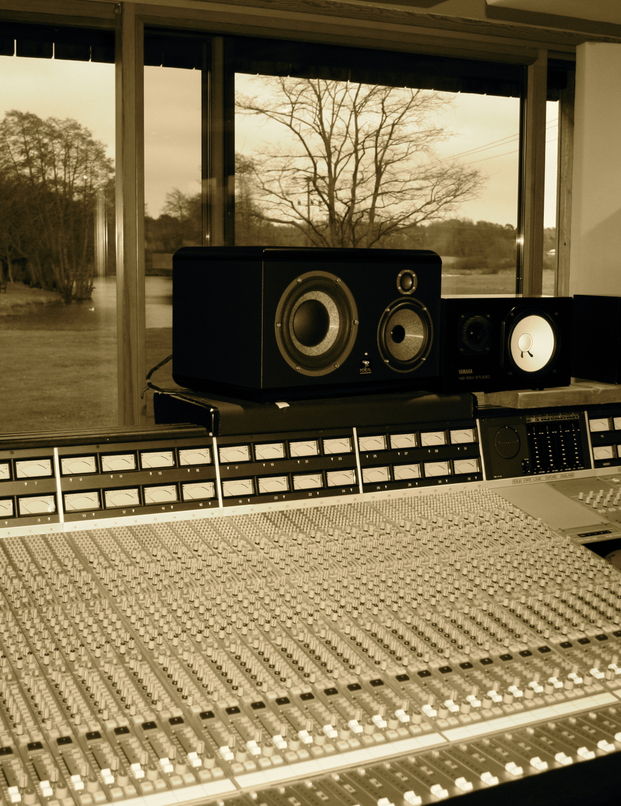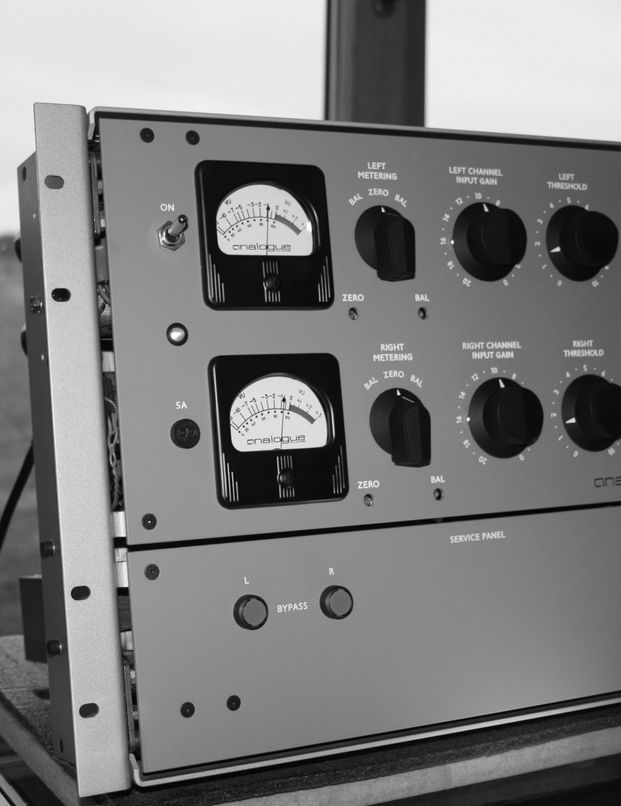Although Cenzo Townshend won't need an introduction to many, for those that aren't aware, the man is arguably the go-to mix engineer this side of the atlantic.
His career began in the late '80s at London's Trident Studios where he worked as assistant to Mark 'Spike' Stent, who he still hails to this day as “the best mix engineer on the planet.” Then, after working independently with Ian Broudie for eight years, he teamed up with Stephen Street (Blur, The Smiths) at The Bunker in Olympic Studios, where he retained residency until it closed its doors in 2009. A two-year stint at Metropolis followed, but today, Townshend works out of his own Decoy Studio in Woodbridge – a quite delectable facility, acoustically treated by White Mark Limited, which boasts stunning views of the Suffolk countryside. He's even got a lake. Jealous? Yes.
Cenzo is in the zone; he's sitting at his 56-channel SSL G Series console listening to the same four bars over and over, switching between two sets of studio monitors, and a little digital radio. Evidently, this is a proven routine. I spy Pultecs, Urei 1176s and LA3As, Distressors, three Neve 33609 stereo compressors, Summit EQs, NTI EQs, SSL compressors – you name it, he's got it. But how much does he still use?
“Oh, 90 percent of it, but I'm also a big fan of Waves plugins – I use them daily and on every song,” Townshend replies, pulling some up on his monitor. “What I like about the Waves philosophy is there are lots of plugins that people will immediately recognise, like a clone of an 1176, or a Fairchild, but there are also plugins that don't exist in hardware form that do specific jobs. You can be almost surgical when using Waves, as opposed to merely colouring the sound.
"Waves is just a very astute company. Their bass management plugins are amazing, so are the de-essers – in fact, all of the dynamic plugins are phenomenal. But I really love the Manny Marroquin [Signature Series] plugins; they're just revolutionary in the way they work. What I embrace about them is that it's not an analogue feel; the EQ is very musical, and there are all sorts of incredible multiband compressors. You don't have that level of control and flexibility with analogue.”
According to Townshend, mix engineers have “never had it so good”, as analogue can still be used for what it's best at, and for everything else, he's got his Waves gear. Interestingly, he uses the SSL G bundle all the time, even though he's got the console in his mix room! “Why?” I ask.
“Because it's so good,” he replies, with a smile. “Although it sounds very similar, I really don't care that it doesn't sound exactly the same; I'm not going to sit there and A/B between the two of them. As long as you can do things fast, you can manipulate the sound as I would with my SSL G, and that's all I ask for.”
Cenzo On Recording
“I love setting up the band before recording; any interaction with them will set you on the right road. It's also about the sound, of course, but if you've got a drummer sat there for two days while you're trying to get a drum sound, by the time he gets to day three, he's not going to play it very well! Snare drum sounds are rarely life or death, trust me!
"It's the same with a vocalist. Don't sit there trying 17 mics over two days; don't even spend two hours on mic selection. Get two good mics and decide together what sounds best. As long as it doesn't sound horrendous, then it'll work. And don't labour it, because a) you'll knacker the singer's voice, and b) the singer really won't want to give you a good performance after that!
“Working with people like Stephen Street, Ian Broudie, and U2 taught me to be quick, not mess about. Don't indulge your quest to find the perfect vocal sound; it's all about keeping people happy and translating what they want to play and put it to tape – or to DAW, I should say! Capture the performance, make good decisions, and commit.”


